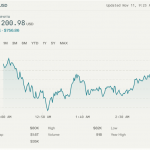
In the ever-evolving world of e-commerce, Jumia Technologies, Africa’s leading online marketplace, has recently unveiled its financial performance for the third quarter of 2024. The results reveal a $20.1 million operating loss, a figure that highlights the ongoing challenges faced by the company amid macroeconomic pressures. This article delves into the implications of these results, exploring Jumia’s strategic responses and what they mean for the future of e-commerce in Africa.
Understanding Jumia’s Financial Landscape
A Closer Look at the Numbers
Jumia’s latest financial report, released on November 8, 2024, indicates a slight deterioration from last year’s figures, where the company reported an $18.3 million loss in Q3 2023. The revenue for this quarter decreased by 13% year-over-year, totaling $36.4 million. However, in constant currency terms, Jumia saw a notable 9% increase in revenue alongside a remarkable 29% growth in gross merchandise volume (GMV) compared to the previous year .This juxtaposition of declining revenue and increasing GMV suggests that while consumer demand is under pressure, Jumia is successfully expanding its market reach and enhancing its operational efficiency.
The Impact of Macroeconomic Pressures
Jumia attributes its financial struggles primarily to persistent macroeconomic challenges affecting consumer demand and operational costs across its various markets. Factors such as inflation, currency fluctuations, and changing consumer behaviors have created a turbulent environment for e-commerce businesses throughout Africa.
Strategic Responses to Economic Headwinds
Strengthening Cash Position
In response to these challenges, Jumia has taken proactive measures to bolster its cash reserves. The company successfully raised $71.8 million through an at-the-market offering in August 2024, bringing its total liquidity to $164.6 million. This strategic move underscores Jumia’s commitment to navigating economic headwinds while stabilizing its financial position.
Operational Improvements
CEO Francis Dufay emphasized that despite the financial losses, Jumia is focused on strengthening its underlying business fundamentals. The company reported a 1% increase in quarterly active customers and a 4% rise in orders year-over-year. These metrics indicate a resilient customer base and suggest that Jumia is effectively diversifying its supply chain and enhancing its value proposition.
Moreover, Jumia has undertaken significant operational changes, including improvements to its logistics network and consolidating warehouse operations to increase efficiency and supply capacity. While these adjustments may have temporarily impacted expenses in Q3, they are expected to position the company for scalable growth moving forward.
Market Adaptation: Exiting Underperforming Regions
Strategic Market Exits
In a bold move to optimize resource allocation, Jumia announced its decision to cease operations in South Africa and Tunisia. This strategic exit aims to redirect focus towards markets with higher growth potential, such as Nigeria and other emerging regions within Africa. While such decisions may have short-term impacts on operations and financial performance, they reflect a long-term vision for profitability and market relevance.
Emphasizing Growth Potential
Dufay noted that despite the challenges posed by currency depreciation in key markets like Nigeria and Egypt, Jumia remains optimistic about its growth trajectory. The company’s strategy includes expanding its footprint beyond major urban centers into rural areas, tapping into new customer segments that have been historically underserved by e-commerce platforms.
The Future of E-Commerce in Africa
Navigating Challenges with Innovation
As Jumia continues to adapt to the dynamic landscape of African e-commerce, it faces both challenges and opportunities. The recent financial results serve as a reminder of the complexities involved in operating within diverse markets characterized by varying economic conditions. However, Jumia’s commitment to innovation—through enhanced logistics capabilities and focused market strategies—positions it well for future growth. As more consumers turn to online shopping amidst economic uncertainties, companies like Jumia that can effectively navigate these challenges will likely emerge stronger.
A Path Forward
In conclusion, while Jumia’s Q3 results reflect significant operational challenges marked by a $20.1 million loss, they also highlight the company’s resilience and strategic foresight. By focusing on strengthening its cash position, optimizing operations, and strategically exiting underperforming markets, Jumia is laying the groundwork for sustainable growth.The future of e-commerce in Africa remains bright as companies like Jumia continue to innovate and adapt to changing market dynamics. As they navigate these turbulent waters, stakeholders will be watching closely to see how these strategies unfold in the coming quarters.














 and then
and then